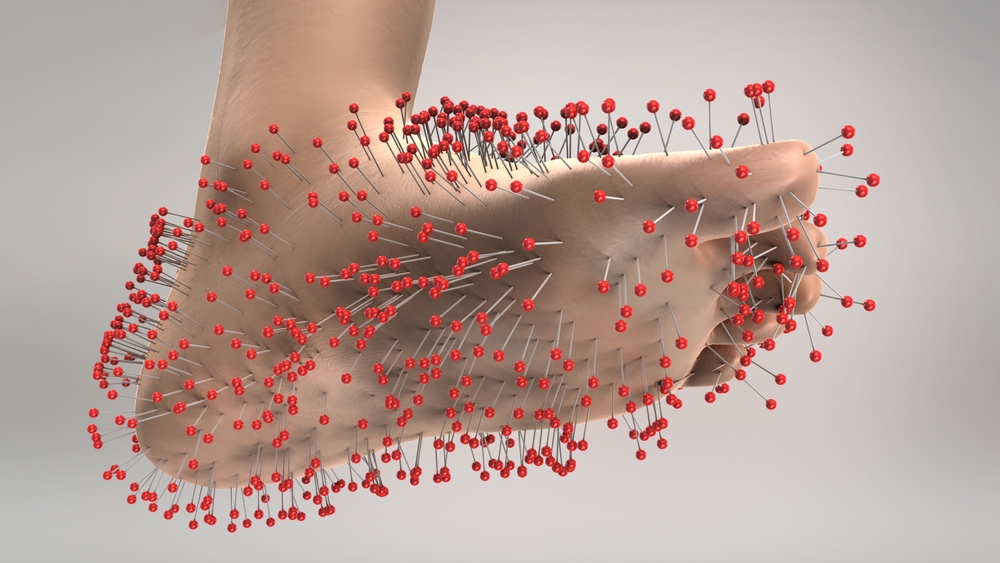
Peripheral neuropathy is a common yet often overlooked condition that can affect people of all ages and backgrounds. Its symptoms may develop gradually, making it easy to dismiss them as minor discomfort or part of the normal aging process. However, these signs can indicate underlying nerve damage that requires attention. Understanding the symptoms and causes of peripheral neuropathy is essential to taking steps toward proper diagnosis and treatment.
What Is Peripheral Neuropathy?
Peripheral neuropathy refers to damage or dysfunction of the peripheral nerves, which are the network of nerves outside the brain and spinal cord. These nerves are responsible for sending signals between the central nervous system and the rest of the body, including the skin, muscles, and internal organs. When they become damaged, communication between the body and brain is disrupted, leading to symptoms such as pain, numbness, tingling, or muscle weakness.
Peripheral neuropathy can result from various causes, including diabetes, infections, injuries, autoimmune disorders, or exposure to toxins. Early diagnosis is important because prompt treatment can help slow progression, relieve symptoms, and improve quality of life.
Common Symptoms of Peripheral Neuropathy
Numbness or Tingling in the Hands and Feet: One of the earliest signs of peripheral neuropathy is a persistent “pins and needles” sensation, especially in the extremities. This tingling may start subtly but can worsen over time, spreading up the arms or legs.
Sharp, Burning, or Shooting Pain: Damaged nerves can send faulty pain signals, leading to sensations like burning, stabbing, or electric shocks. These symptoms may occur at rest or become more noticeable at night.
Muscle Weakness: As neuropathy progresses, it can interfere with motor nerves, leading to weakness in the arms or legs. This can make it difficult to perform everyday tasks or maintain balance.
Loss of Coordination or Balance: When sensory nerves are impaired, it may become harder to walk steadily or maintain coordination. This increases the risk of falls and related injuries.
Sensitivity to Touch: Some people develop heightened sensitivity, where even light touch from clothing or bedding can cause discomfort or pain - a condition known as allodynia.
Changes in Skin, Hair, or Nail Growth: Nerve damage can affect blood flow and tissue health, sometimes leading to thinning skin, hair loss, or changes in nail appearance.
The Importance of Early Intervention
Peripheral neuropathy often develops gradually, which can make it easy to overlook in the early stages. However, untreated nerve damage can become permanent. By seeking help at the first signs of symptoms, you can:
Prevent further nerve deterioration through targeted treatments and lifestyle changes.
Address underlying causes such as diabetes, vitamin deficiencies, or autoimmune disorders.
Relieve discomfort and improve your ability to perform daily activities.
The earlier you begin a treatment plan, the better your chances of slowing or reversing nerve damage and maintaining your quality of life.
Take the First Step Toward Relief
Peripheral neuropathy can cause a wide range of symptoms, from tingling and numbness to severe pain and weakness. Recognizing these early warning signs is crucial to preserving nerve health and preventing long-term complications. We can help identify the cause and create a personalized treatment plan to protect your nerve health.
If you’ve noticed numbness, tingling, or pain in your hands or feet, don’t wait for symptoms to worsen. Contact Simple Wellness Clinic to schedule your consultation and get back to living without nerve pain. Visit our office in West Linn, Oregon, or call (503) 713-6177 today.











